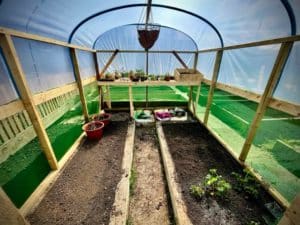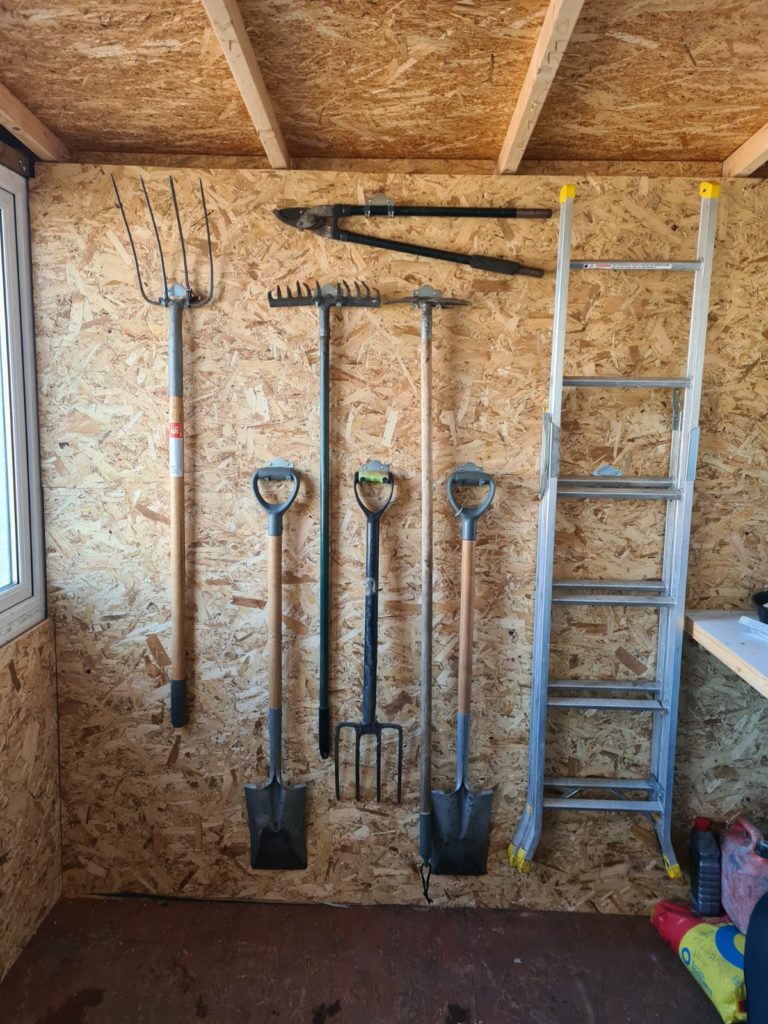Table of Contents
May Jobs On The Allotment: Essential Tasks for a Bountiful Harvest

May Jobs On The Allotment: Allotments have a long history in the UK and also remain an integral part of the gardening community. An allotment plot can provide a garden enthusiast with a space to grow a variety of fruits, vegetables, and flowers. Flowers add beauty to your allotment, while fruits and vegetables provide you with fresh, healthy produce throughout the year. So, in May, the weather is warming up, which makes it the perfect time for planting. Here are the essential tasks to be done in the month of May for allotment gardening enthusiasts in the UK.
Plants suitable for May planting
May is a great time to start planting warm-weather crops such as tomatoes, cucumbers, pumpkins, carrots, beans, and salad greens. Make sure that the soil is well-draining. The plants should receive plenty of sun but also partial shade during the hottest part of the day.
Soil Preparation
In May, the soil should be free of weeds, debris, and compacted soil. Loosen the soil with a garden fork or tiller to a depth of at least 6 inches. Also, add compost or well-rotted manure to improve soil health and prevent nutrient deficiencies.
Watering Techniques
The warmer weather in May means that your plants will require regular watering to avoid drying out. Water early in the morning or late in the day to prevent water evaporation. Place your plants in well-draining soil to ensure they absorb enough water and avoid watering leaves to prevent fungal growth.
Fertilizing Methods
To promote healthy growth, consider fertilizing your plants with an organic fertilizer or compost. Compost can be made from garden waste or kitchen scraps, which will provide your soil with the nutrients it needs to thrive.
Pruning Requirements
Pruning requirements vary depending on the type of plant. For tomatoes and cucumbers, prune the lower leaves to promote airflow and prevent soil-borne diseases. For fruit bushes and trees, prune the oldest wood and damaged or dead branches.
Pest and Disease Control
To prevent pest and disease problems, keep your allotment clean and free of debris. Companion planting can often deter pests. Consider using natural pest control methods such as sticky traps, sprays, and natural repellents. So, if your plants do become infected, remove the infected areas immediately to prevent the spread of disease. Also, make sure you are using a good set of gardening gloves.
Transplanting
May is also an excellent month for transplanting seedlings you started indoors. Make sure, you carefully remove the seedling from the container, loosen the roots, and plant at the appropriate depth in the new location.
Mulching
Mulching can help retain moisture, suppress weeds, and regulate soil temperature. Place a layer of organic mulch around the base of your plants. This can also help conserve water and improve soil fertility. To keep your plants healthy, ensure that the mulch is applied evenly and topped up as needed. Avoid piling it too close to the stems of your plants or covering them completely. Choose a suitable mulch for your garden, such as wood chips, straw, grass clippings, bark & compost.
Composting
Composting is a great way to reduce the amount of waste and recycle your plant’s organic material. So, consider starting a compost bin, which can provide you with healthy compost for your garden. Whether you use a traditional compost bin or an enclosed compost tumbler, make sure to include both green and brown materials in your compost. Green materials are high in nitrogen and include lawn trimmings, food scraps (avoid animal products) and some plants. Brown materials are high in carbon, like leaves, straw and wood chips. Remember that the more variety you have in your compost bin, the better it will be for your soil. Also, make sure to turn and mix the compost every couple of weeks to ensure it gets enough oxygen. Finally, with regular maintenance, you can enjoy high-quality compost in no time!
Essential Tools
Ensure you have the following essential tools to maintain your allotment garden in May:
May Jobs On The Allotment: Checklist
Finally, here is a checklist of all the essential tasks to be done in May jobs on the allotment to keep your garden thriving:
- Ensure soil is free of weeds and debris and has optimal sunlight.
- Choose and plant suitable vegetation for May planting, like fruits, vegetables, and salad greens.
- Amend soil with compost or well-rotted manure.
- Implement proper watering techniques.
- Fertilize your plants for healthy growth.
- Prune your plants to promote optimal growth and circulation.
- Implement natural pest and disease control measures.
- Transplant seedlings into new locations.
- Mulch to retain moisture and prevent weed growth.
- Compost to reduce waste and provide healthy soil.
- Maintain essential tools for gardening.
May Jobs On The Allotment
By following these essential tasks in May and throughout the gardening season, you will be rewarded with a beautiful, healthy, and productive garden. Happy gardening!

